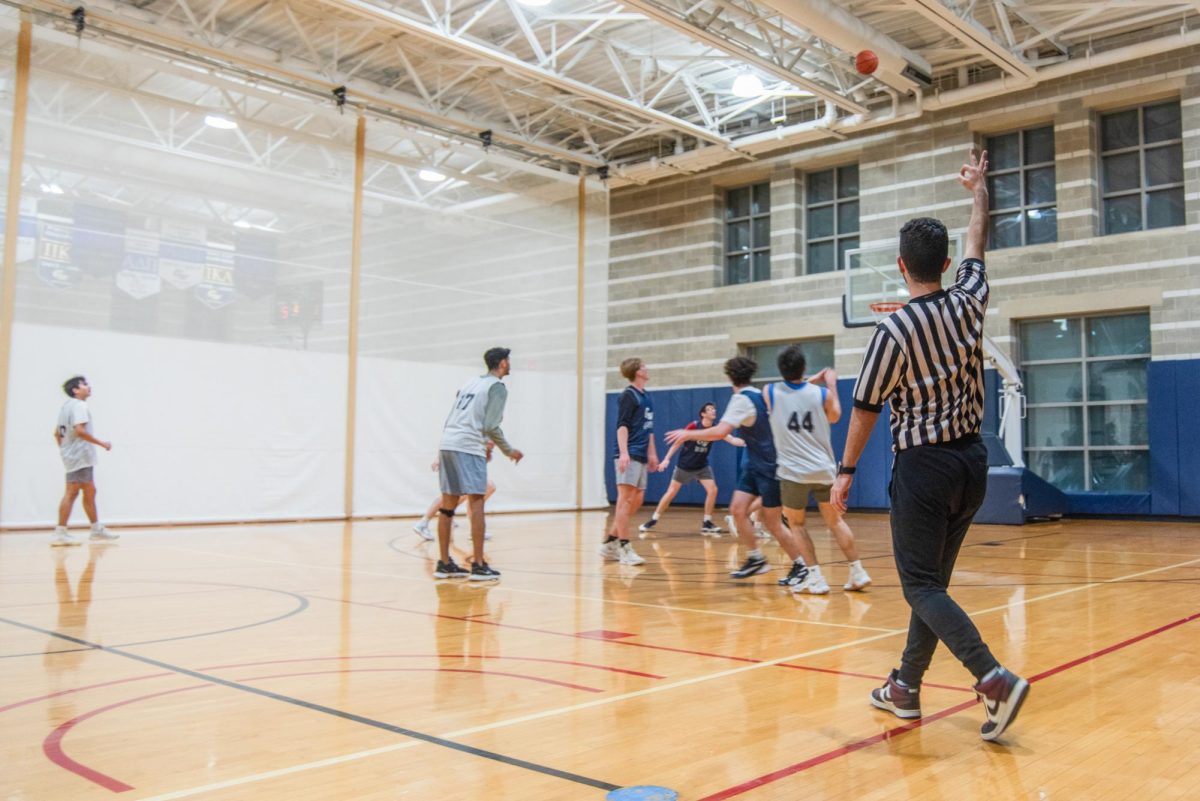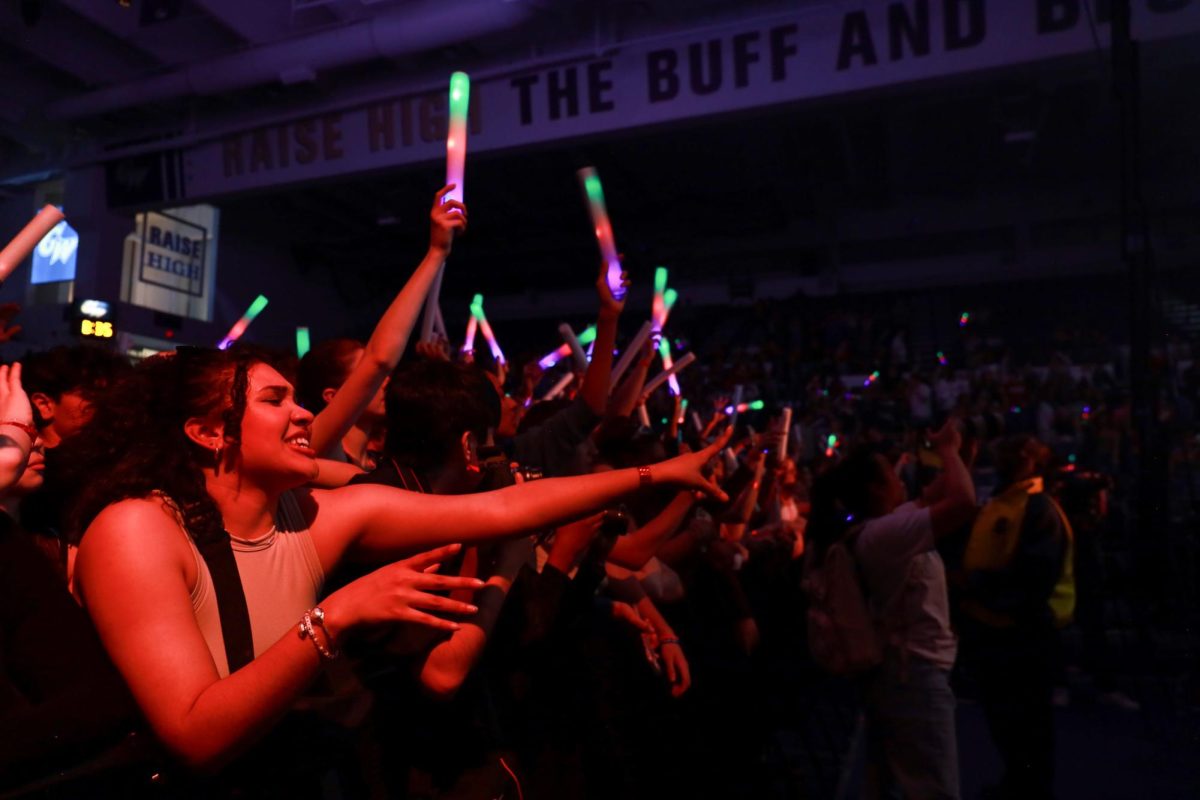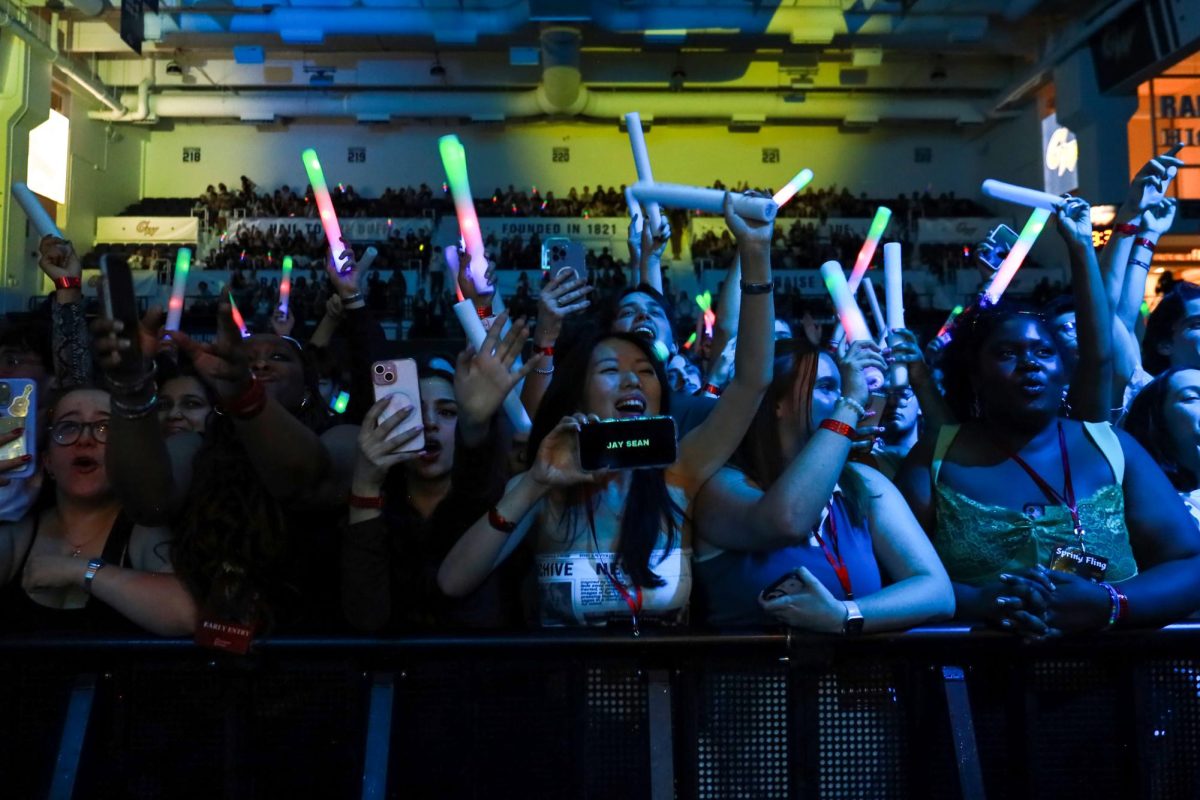On the courts of the Lerner Health and Wellness Center, a player stopped and picked up the basketball, just before starting to dribble again.
A double dribble, a textbook violation — only there wasn’t a whistle issuing a foul after it. And the opposing players decided to give referee Declan McGrath a piece of their mind.
“F*ck you, f*ck this, you f*cking suck,” McGrath said the players yelled at him.
The situation eventually dissipated, with McGrath issuing technical fouls to the players, but these battles are an ordinary occurrence a mere block away from the Smith Center. Most weeknights, a series of fierce five-on-five matches are duked out as intramural basketball teams fight for victory, commemorative t-shirts and bragging rights. On the sidelines of these heated games are the smack talk’s scapegoats: the student referees.
There are dozens of student referees, largely unrecognized, who deal with the jeering, low pay and back-and-forth running to keep intramural sports alive at GW — all for the love of the game.
Junior Sebastian Zambrano, a referee coordinator for GW intramural sports, said glib comments from intramural basketball contestants are a mundane and common occurrence — but players aren’t afraid to get creative with how they heckle him.
“Like, ‘Ref, pick up the phone, you missed the call,’ or like stuff like that,” he said as an example of comments players have thrown at him.
Zambrano said judging basketball, in addition to other sports like esports and volleyball, has given him some empathy for sideline officials.
“As a fan sitting on the couch, you can belittle the ref like, ‘That’s such a bad call,’” Zambrano said. “But now, being a ref, you can understand why they made that call.”
Sophomore referee Ava Hurley, majoring in environmental and sustainability science, said she played soccer for 14 years growing up and served as a youth soccer referee, something that drew her to this job. She said despite having experience both playing and officiating the sport, she doesn’t always feel respected by players.
“I do get undermined a lot because I’m a girl for sure,” she said. “They’ll yell at my other co-workers like they’ll say things they want to say to me to them because they don’t think that I’m going to understand.”
She said despite such disrespect, there are still almost as many female referees as male referees.
“I love my job,” she said.
McGrath, a junior majoring in public health and the referee heckled for a missed double dribble, began refereeing last year. McGrath said he was drawn to the intramural referee job listing last winter because it’s a “sporty job,” matching his interest in athletics. He said he loves the competitive drive of the game — even if he is not experiencing the competition firsthand.
“Basketball is definitely our most intense sport,” McGrath said. “There’s the most contact there, and that just generates a certain tension between the players and the refs, too. Because it’s the most similar to the actual sport that’s being played.”
To prepare for the referee role, McGrath said there are training sessions, including a class to cover rules, hand signals and calls; a trial run of the hand signals for practice; and an expedition game between two real teams to put everything into action. He said all referees work a variety of sports, depending on individual scheduling.
“We have a great community,” McGrath said. “We support each other a ton, especially in basketball when tensions can run high between the players and referees, I feel like we do a great job in supporting each other and calls that we make.”
McGrath said these connections extend beyond the court — he said when he first got hired, people asked him about his classes and friends to get to know him.
“Everybody’s very welcoming,” he said. “And it’s easy to talk to everyone.”
He said another appeal of the job comes from the on-court environment — even with all the heckling. He said the intramural basketball finals are played in the Smith Center, and though the attendance didn’t match that of a GW basketball game, the more professional court made up for it.
“The atmosphere even though there weren’t many people in the stands, it was still cool to be down there and running back and forth,” McGrath said.
Karl Simon, a senior majoring in computer science who has played in the soccer and basketball intramural leagues, said he appreciates intramurals, seeing them as something lighthearted to look forward to outside of classes. He said though some teams are more competitive than others, their antics give a chance for less riled-up teams to bond with the refs.
“Some teams get pretty heated and emotional,” Simon said. “And so the refs and the cooler team kind of give looks to each other.”
Ava Ahner, a senior majoring in international affairs, said in her two years as a referee for GW intramural sports, she has seen familiar faces, and teams often play a sport together each season. She said for many, the appeal of intramural sports is hanging out with friends and doing something relatively low stakes.
“It’s like a good way to hang out with your friends and play sports in a way that’s not too serious,” Ahner said.
First-year Mark Achkar, a biology major, said the league is an accessible and fun way to get together with friends. While pandering to the officials can work in a team’s favor, he said being kind to the referees creates a positive atmosphere.
“Sometimes it works, sometimes it doesn’t,” he said. “It kind of depends on the day, but you always be nice to the refs and they’ll be nice to you.”




